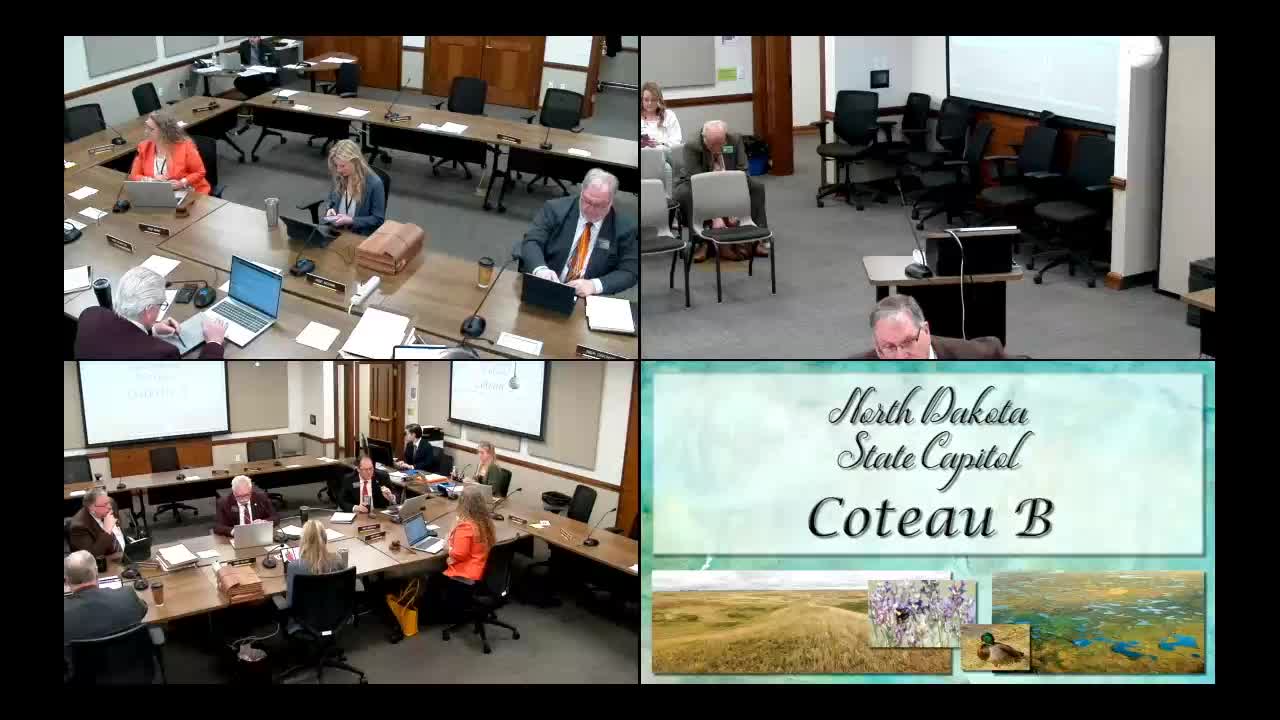Conference committee delays final action on House Bill 1363 after debate over school AED requirements
Get AI-powered insights, summaries, and transcripts
Subscribe
Summary
A conference committee reviewing House Bill 1363 debated on whether to require schools to include automated external defibrillators (AEDs) in emergency plans, then agreed to reconvene after members proposed written changes.
A conference committee reviewing House Bill 1363 debated on whether to require schools to include automated external defibrillators (AEDs) in emergency plans, then agreed to reconvene after members proposed written changes.
The committee discussed several contested items in a Senate amendment: changing a mandate from "shall" to "may," limiting the requirement to school‑owned facilities and athletic venues, creating plans for school events held off campus, and language saying AED access must occur "when circumstances permit" rather than under a strict three‑minute retrieval requirement. Committee members did not adopt final language at the session and said they would reschedule the hearing to consider revisions.
Why this matters: the bill would affect how school districts prepare for life‑threatening cardiac events involving students and others at school activities. Lawmakers said they weighed student safety, the logistics of providing AED access at dispersed events such as cross‑country meets or golf courses, and potential liability for schools.
Committee members said the Senate amendment softened earlier draft language that required AEDs to be available everywhere pupils might be present. One legislator summarized the change as replacing a mandatory "shall" with a permissive "may" and adding a provision to limit requirements to "school owned facilities, grounds, and athletic venues." The Senate language also added a phrase — "when circumstances permit" — intended to temper the requirement to act in every situation.
Representative Heinert (Representative) raised a concern that wording such as "when the circumstances permit" could expose districts to lawsuits if a student suffered a cardiac event and a parent argued the school should have had an AED available. Senator Wabamah (Senator) responded that narrowing the duty to school‑owned property and requiring a written plan would help protect districts, saying that developing and documenting a reasonable plan is the committee's intended workaround.
Witness testimony cited logistics that influenced the amendment. Mike Heileman, who testified about an instance when he took students off campus and they traveled in private vehicles, described situations in which carrying an AED or meeting a strict timing requirement would be difficult.
Several members emphasized the committee's particular concern about a provision that would require an AED to be retrieved and placed on an individual within three minutes of a cardiac event. One lawmaker explained that the stated three‑minute requirement is difficult to achieve in many settings because retrieval, transport and application of an AED can consume additional time; members discussed alternatives such as phrasing the timing as a goal ("with a goal of fewer than three minutes") or using "as soon as possible" instead of a strict numerical mandate.
Other topics raised included maintenance and readiness of AEDs (battery checks and readiness checks), an immunity provision in subsection 5 intended to protect schools acting in good faith, and whether the requirement should initially apply only to school grounds while the committee allows time for districts to develop and implement plans. One senator proposed giving schools a period (members mentioned two years as an example) to implement requirements before converting permissive language to mandatory.
There was also discussion about whether the phrase "school owned facilities, grounds, and athletic venues" should be interpreted to require plans only for venues owned by the district or also for events and venues the district uses but does not own (for example, civic centers or host schools' gymnasiums). The committee asked legal counsel to advise on whether the modifier in the draft applies only to the first item in the list or to all items.
No formal vote or final amendment was recorded. Representative Heiner suggested members draft written proposals and reconvene; the chair said the committee would reschedule the hearing so members could circulate and consider written changes and legal counsel guidance.
Votes at a glance: No formal motions or roll‑call votes on final legislation were taken at this session; members discussed amendment language and procedural next steps.
Reporting details
Speakers listed in the transcript include: Chairman Hauck; Representative Heinert; Representative Novak; Representative Heiner; Senator Beard; Senator Gerhardt; Senator Wobemar (also transcribed as Wabamah/Wabaman); Senator Boock; Mike Heileman (witness); and unnamed legal counsel and staff members who spoke during the meeting.
